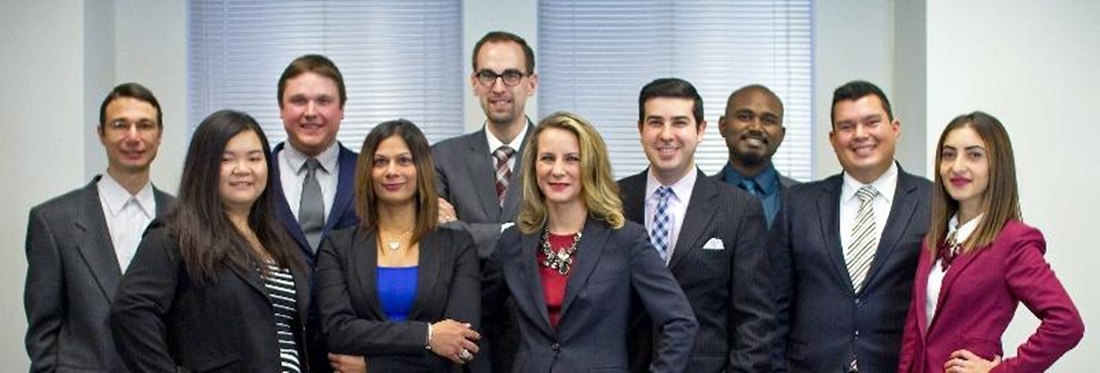Q&A – Criminal inadmissibility, applications for rehabilitation, and humanitarian and compassionate requests
July 28, 2021 Learning moments
A Canadian citizen would like to sponsor her husband (US citizen) under the Family Class. The husband is inadmissible to Canada due to a single DUI in the US which happened 5 years ago. His sentence included a 5-year term of probation which was recently completed in June of 2021. If he wants to apply for rehabilitation, he needs to wait 5 more years until he is eligible to do so and 10 years before he is eligible for “deemed” rehabilitation.
- Can the humanitarian and compassionate provision be used in conjunction with the permanent resident sponsorship, and/or the rehabilitation application, so that the clients can get around the 5-year waiting period? Or must the husband wait out the 5 years before he is eligible to be sponsored?
- Would the PR and rehabilitation applications need to be submitted concurrently?
25 (1) Subject to subsection (1.2), the Minister must, on request of a foreign national in Canada who applies for permanent resident status and who is inadmissible — other than under section 34, 35 or 37 — or who does not meet the requirements of this Act, and may, on request of a foreign national outside Canada — other than a foreign national who is inadmissible under section 34, 35 or 37 — who applies for a permanent resident visa, examine the circumstances concerning the foreign national and may grant the foreign national permanent resident status or an exemption from any applicable criteria or obligations of this Act if the Minister is of the opinion that it is justified by humanitarian and compassionate considerations relating to the foreign national, taking into account the best interests of a child directly affected.
As you can see from the text above, section 36, which deals with criminality and serious criminality, is not listed as one of the types of inadmissibility that are unable to be overcome with humanitarian and compassionate grounds. Therefore, humanitarian and compassionate arguments can be submitted as part of the sponsorship application and application for permanent residence.
Section 25(1) is a remedy that can be used for foreign nationals who apply for “permanent resident status” or a “permanent resident visa”. This wording makes it doubtful that s.25(1) could be used to request an exemption from the criteria for rehabilitation (e.g. that an applicant needs to wait five years after the end of their sentence for certain crimes before applying for rehabilitation). Even if it were possible to have recourse to s.25(1) to request an exemption from the rehabilitation criteria, applying for rehabilitation when ineligible complicates things unnecessarily. If the inadmissibility can be overcome directly by submitting humanitarian and compassionate arguments as part of the permanent residence/sponsorship application, then why submit two types of applications with two different fees? The arguments that should be advanced as part of the humanitarian and compassionate assessment will essentially be the same in any event.
Guidance from the Immigration, Refugees and Citizenship website states as follows:
Assess whether the known inadmissibility, for example, a criminal conviction, outweighs the H&C factors. Consider factors such as the applicant’s actions, including those that led to and followed the conviction such as:
- the type of criminal conviction
- the sentence imposed
- the length of time since the conviction
- whether the conviction is an isolated incident or part of a pattern of criminality
- any other pertinent information about the circumstances of the crime.[1]
You should also put forward any other applicable humanitarian and compassionate grounds that would be argued in an application for permanent residence on humanitarian and compassionate grounds (e.g. best interests of the child, family reunification, ability to become established in Canada, etc.).
Therefore, the husband does not need to wait five years before he and his Canadian spouse can submit a sponsorship application. However, the chances that the humanitarian and compassionate arguments will be successful will be dependent on the facts.
Given the response to the first question, the second question becomes moot. However, in circumstances where the client is eligible to apply for rehabilitation, then the application should be submitted in accordance with the following instructions from Guide 5312:
Where do I apply?
In Canada: Mail your application to the Canada Immigration Centre responsible for your area. Addresses are available online.
Outside Canada: If you are applying for criminal rehabilitation along with your temporary resident (visitor visa, study permit or work permit) application, you can submit everything together and apply at the nearest Visa Application Center.





